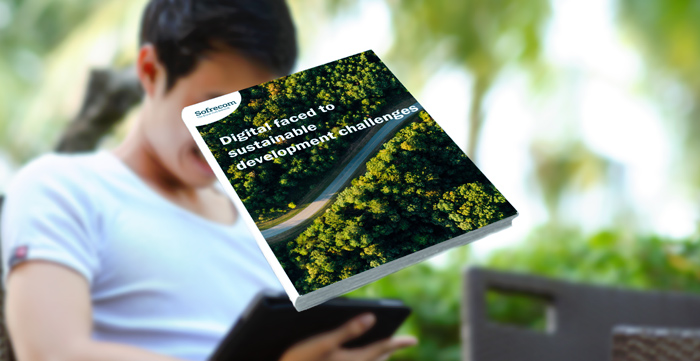
Protecting resources, our environment and our health, to enable the economic and industrial development of territories, to reduce waste and wastage: the circular economy is an economic model that aims to meet these challenges. It aims to move from a throwaway society, based on a linear economy (extract, manufacture, consume, throw away) to a more circular economic model.
As part of its Engage 2025 strategic plan, the Orange Group has an ambitious objective in terms of sustainable commitment: to anticipate the GSMA's objectives by 10 years by being net zero carbon by 2040. The use of renewable energies and second-hand network and IT equipment has been identified as one of the levers to achieve this ambition. Our experts supported the launch and implementation of its ambitious and innovative circular economy program.
The main objectives of the Circular Economy program
The challenge for Orange is for the circular economy to be one of the pillars of its commitment to sustainable development and at the same time improve its operational efficiency by initiating concrete actions such as:
- Using second-hand equipment,
- Reselling obsolete equipment,
- Supporting technical and financial teams of different entities within the group, as well as of its partners and suppliers.
In this context, the innovation department management has launched a transformation program to structure its approach and to drive behavioral change within the different entities of the group. To this end, Sofrecom had to:
- Manage the transformation project,
- Refer alternative suppliers of second-hand network and IT equipment,
- Promote and raise awareness of circular economy challenges both internally and with Orange suppliers and partners,
- Follow up the implementation of this transformation plan in the different subsidiaries of the group,
- Elaborate the deployment plan and help industrialize the use of refurbished equipment.
Study and implementation of a reconditioned equipment marketplace
For this purpose, our experts have carried out an inventory of the actions in place in terms of circular economy and information flow to manage the purchase of network and IT equipment. They carried out a market survey among suppliers of refurbished network and IT equipment.
The collected information allowed to:
- draft a set of specifications for the selection of alternative suppliers and launch the selection process.
- set up a one-stop shop in charge of receiving all purchase/sale material needs. This was to check the availability of reconditioned equipment with other subsidiaries and then with the alternative suppliers selected for equipment purchases and to boost the visibility of the proposed equipment on the group's internal marketplace for material resale.
Negotiation and assistance in selecting alternative suppliers
The first step towards the circular economy at Orange was to change the group's approach to its suppliers in terms of purchasing. It updated the 7-step purchasing process to consider used equipment before new equipment. The objective is to build systemic processes to enhance the value of dismantled infrastructure in countries and to encourage the use of alternative suppliers of IT and telecommunications equipment.
To do this, it was necessary to identify and select alternative suppliers to Orange's traditional suppliers and to set up framework agreements with the main suppliers ready to commit to the development of the circular economy:
- Procurement of second-hand equipment from equipment manufacturers
- Reuse between Orange subsidiaries
- Resale outside the Orange Group.
To accompany this step, our experts led the negotiations to select alternative suppliers. They built the test plans necessary for the proper qualification of the reconditioned equipment. Alternative suppliers are all suppliers of computer and network equipment that compete with the offers of the historical suppliers.
Transformation plan and change management
To accompany the implementation within the different group entities, a change management and training plan was carried out by our deployment engineering teams:
- Conducting several training sessions for a better understanding of the challenges and to facilitate the handling of the processes,
- Drafting a guide of the best practices to facilitate the local implementation of circular economy operations,
- Providing operational support to subsidiaries during the deployment of refurbished hardware on software/firmware configuration, compatibility, interoperability and maintenance aspects.
- Providing end-to-end assistance for complex multi-stakeholder projects requiring the implementation of a TCO (Total Cost of Ownership) decision matrix to choose the best equipment to buy/sell
- Boosting the visibility of the equipment roadmap and sharing it to determine medium-term requirement estimates.
Result
At the end of our intervention, 25 subsidiaries were trained to face the challenges of the circular economy and the new processes of purchasing and reselling equipment.
The operational support of our team helped in enrooting the new practices in the various subsidiaries and to make them autonomous.




